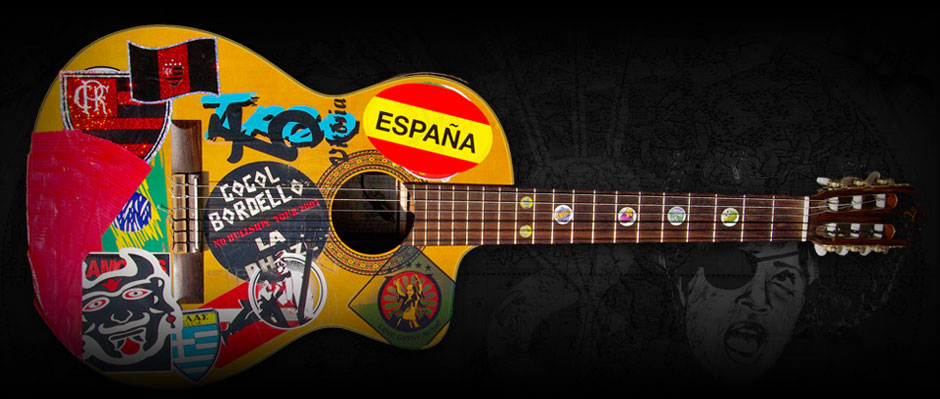
Earlier this year Gogol Bordello traveled to London and shook the foundations of the Camden Roundhouse from the very core. The high amounts of energy exuded took no break as every person in the pit jumped and danced in a sea of perfect unison. Front man Eugene Hütz offered some insight into the sound of Gogol, the role of rock music while growing up in the Ukraine and the energetic spark of live performance, which ignites the soul.
Gogol Bordello is often described as ‘Gypsy punk’. Do you feel like that’s a good way to describe the music you’re creating?
Well nobody described it really. The way that came about is several actual ethical gypsies who reside in New Orleans came to our show and were blown away, and they came up to us and said this is kind of like Gypsy Punk Rock or something, and I thought, “Wow that’s the name of the album right there.” It was probably the most appropriate term that popped in my head at that moment, and it remains to be a most appropriate title for that album. From then on the band kept changing and evolving so many times. The element of it is still there, but it’s music of an open mind, and an adventurous soul. It’s certainly based equally in rock ‘n’ roll and folklore of many countries. So maybe you can say it’s like a trans-global, rock ‘n’ folk, if you need to (laughs).
Where you grew up was there a lot of rock ‘n’ roll, or was it not really a part of the culture?
Well I grew up in Ukraine and there was nothing available for rock ‘n’ roll, absolutely nothing. So the way to find it was through the black market, which we of course did. So, was a lot of it available for the public? Absolutely not. Did we have everything? Fuck yeah. I was skipping school to go to the black market every week. In fact I feel like because of such a deficit for music being served, myself and other people who grew up like that, benefit way more from music. You take it all for granted here. Back then, I grew up with the attitude that music is a treasure. Consequently life is full of treasures.
Would you say that type of music is more prevalent now in the Ukraine?
Well the distinction is between Soviet Union years and once it collapsed there was no gate anymore. It doesn’t mean that suddenly everyone got down with the cream of the crop music, it just means that everything poured in there in uncontrollable volumes without anyone being able to judge the great music from total shit. So, they have some time to figure it out now.
When you would skip school, what kind of music did you go get?
You know, the usual…Sex Pistols, Joy Division, Black Sabbath, Parliament Funkadelic, Nick Cave, everything that was a channel of powerful energy.
What was it about that music that you enjoyed?
I think for me the musical storytelling became the focus. It remains to be the focus even now underneath it all. It seems to be a worthy thing to do. Somewhere in there, there is an importance of communication, and an importance to tell your story and hear the other story out as well, you know?


No Comments comments associated with this post